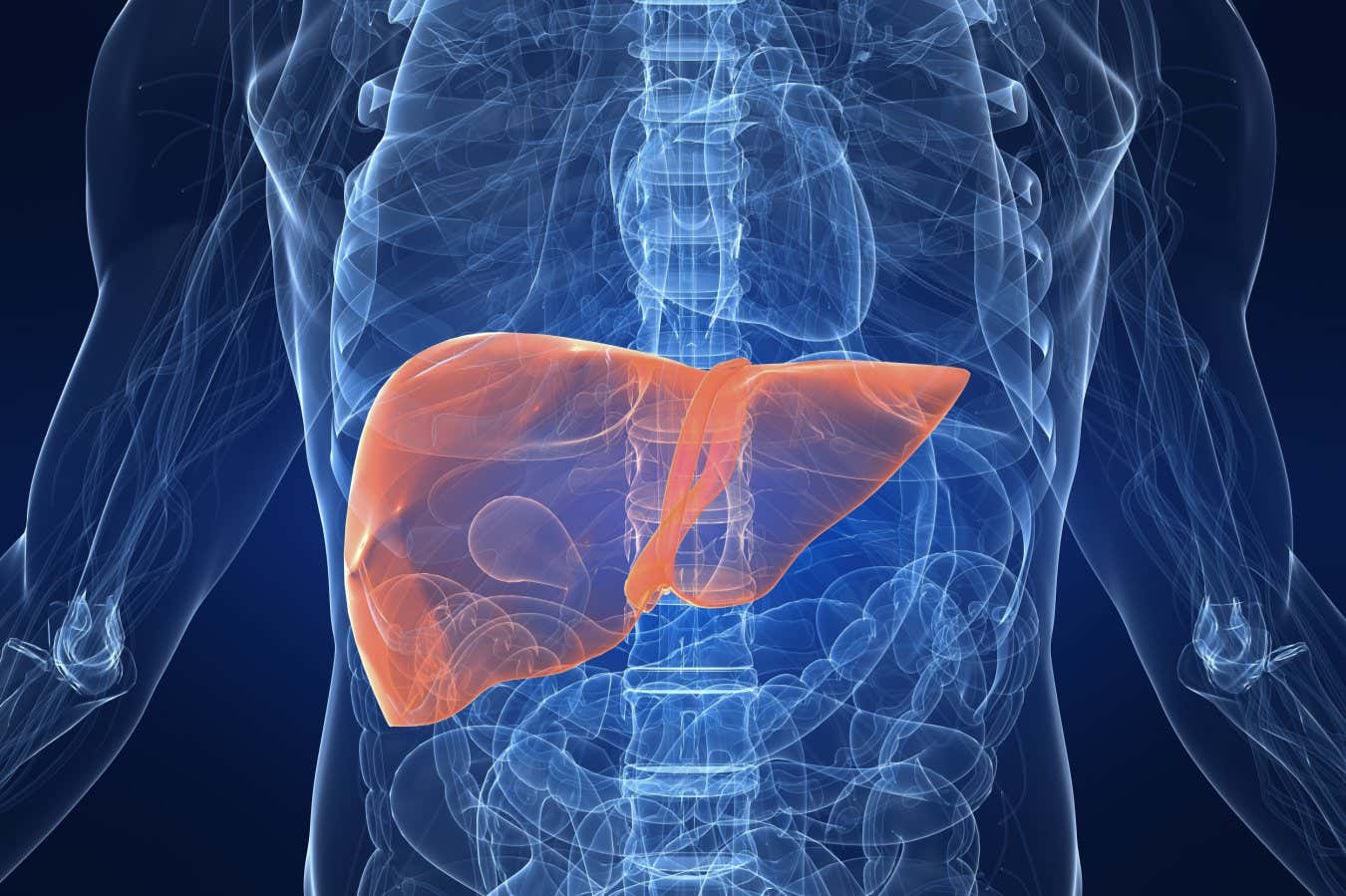Semaglutide, a drug commonly taken for weight loss, showed marked benefits for most patients in a trial for metabolic dysfunction-associated steatohepatitis (MASH)
By Christa Lesté-Lasserre
30 April 2025
Fatty liver disease can lead to cirrhosis and cancer
3dMediSphere/Shutterstock
A popular drug for treating obesity and diabetes is now showing benefits in fighting a deadly liver disease.
Semaglutide, marketed under names including Ozempic and Wegovy, aids weight loss and blood sugar regulation by mimicking a natural hormone, GLP-1, which curbs the appetite and triggers insulin release. Now, researchers have discovered that the medication can also halt – or in some cases even reverse – the condition known as metabolic dysfunction-associated steatohepatitis (MASH).
Read more
Why you may have a stealth liver disease and what to do about it
Advertisement
“This potentially offers a foundational approach to the management of this condition,” says Philip Newsome at King’s College London. “It’s quite exciting for patients.”
“This is just groundbreaking news,” says Jeffrey Lazarus at CUNY School of Public Health & Health Policy in New York, especially in combination with last year’s US Food and Drug Administration approval of a drug for the condition, resmetirom. “We’ve had no treatment for this disease apart from non-pharmaceutical interventions, like approved diet and physical activity. And now with both these drugs, there’s finally something more we can do.” Even so, the medications should never replace lifestyle changes, but complement them, he adds.
MASH, formerly called NASH, is the severe form of non-alcoholic fatty liver disease marked by increased fat build-up in the liver that leads to inflammation and fibrosis – the formation of scar tissue – and sometimes cirrhosis and cancer. MASH is typically linked to obesity and often to type 2 diabetes.
